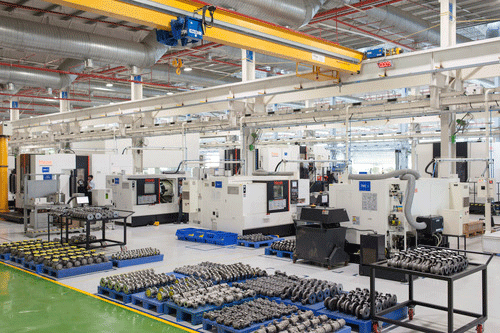GE’s new ‘brilliant factory’ provides flexible manufacturing structure
March 16, 2015
GE has announced an investment of over $200 million in a new production plant located in Pune, India. The new facility will produce a wide range of products, from jet engine parts to locomotive components, for four different GE businesses under one roof for the first time.
The plant covers 67 acres and will employ 1,500 workers who will share production lines, support infrastructure and equipment such as 3D printers and laser inspection technology. “The plant will allow us to quickly adjust production as demand comes in, using the same people and space,” stated Banmali Agrawala, President of CEO of GE South Asia.
The facility incorporates a new flexible concept that GE calls the ‘brilliant factory’, in which factory equipment and computers talk to each other over the Industrial Internet in real time, share information and make decisions to preserve quality and prevent downtime. In such a factory, production lines are digitally connected to supply, service and distribution networks to maintain optimal production.
“The brilliant factory is more than 3D printing parts from digital files, which we already do,” stated Christine Furstoss, Global Technology Director at GE Global Research. “We can build a factory that can make itself better.”
India was chosen as the location to build GE’s first iteration of such a plant because the company stated it wants to harmonise its operations there, gain size and scale quickly, and support its suppliers. “We have too many small suppliers and their ability to leverage size and scale becomes a problem,” Agrawala stated. “The multi-modal plant is good for us and good for them. It will give us a chance to invest in the right tools, processes and training, keep our machines utilised, and develop new products faster and cheaper. It will also give us a chance to experiment and try new things.”
Subscribe to our FREE e-newsletter
- Sign up for our FREE e-newsletter here
Useful links: News | Articles | Introduction to metal Additive Manufacturing

















